Uganda Language: Ultimate Travelers Guide (English, Swahili, +40 More)
Curious if you’ll understand anyone in Uganda? In this post, you’ll learn all about Uganda language, including English, Swahili, and Uglish. Learn about road signs, useful Swahili words, and how to learn the basics.
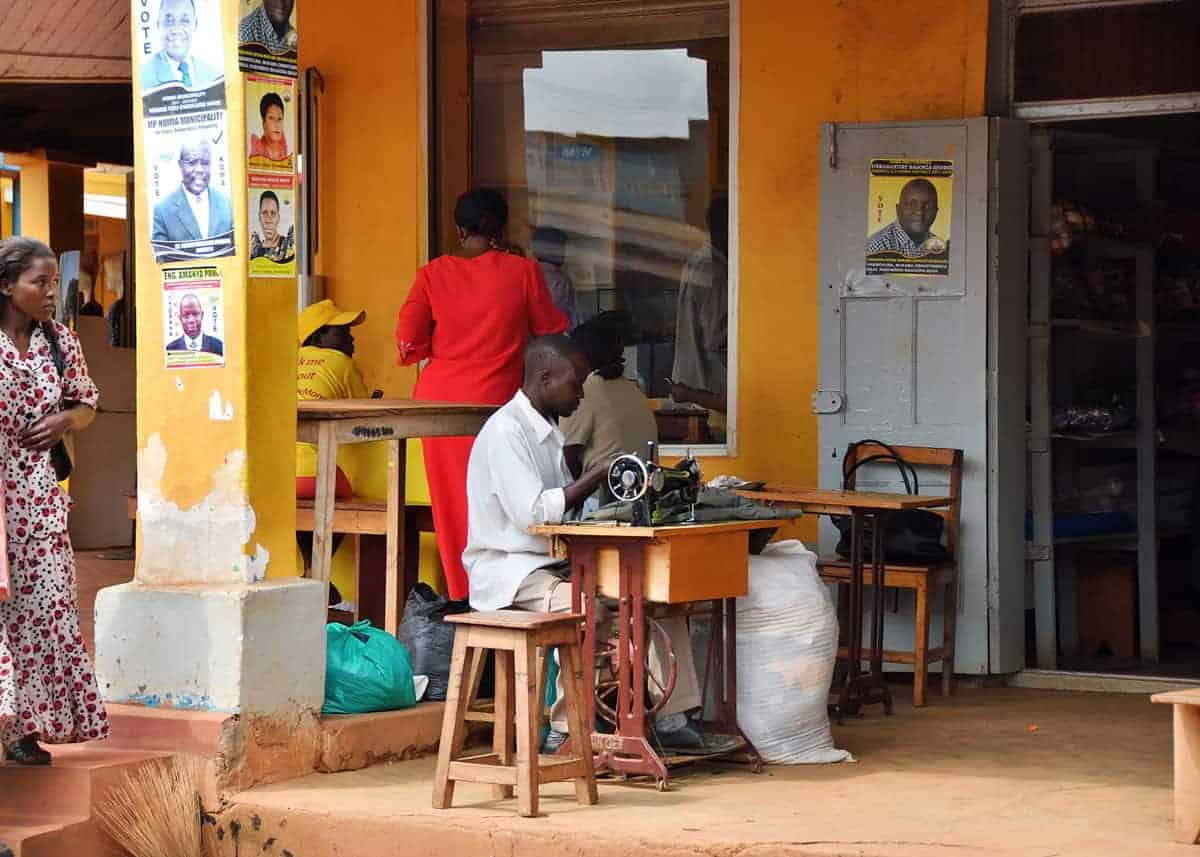
Ultimate Travelers Guide: Uganda Language
When traveling in Uganda, you will need to communicate with people for directions, booking a hotel room, buying goods at the market, or hiring transportation and tour guides. So, you may wonder, “What is the Uganda language?”
Well, the answer to that question is that there are at least 40 languages in Uganda. But, don’t panic. You won’t need to learn them all because the country has two official languages that most Ugandans use: English and Swahili.
In this post, we are providing you with answers to some of the most frequently asked questions regarding Uganda language as well as common greetings and words/phrases that are useful for travelers. So, let’s get to it!
Background of English and Swahili in Uganda
English in Uganda
English was introduced into Uganda through missionary work, education and leadership after the country became a British colony in 1894. By the time Uganda gained its independence in 1962, English was so common that it remained as the country’s official language.
While local tribal languages are still used in family homes and schools, English is used widely to communicate formal information through the media, government, education, and politics.
In Uganda today, the use of English is often associated with higher social class, status, and education.
Swahili in Uganda
Swahili is the most widely spoken language in all of Africa, it is a language that is often used as a way for various ethnic groups to communicate with one another. During the regime of Idi Amin Dada (1971 to 1979), Swahili was proclaimed Uganda’s national language. After the dictator’s administration ended, English was once again elevated to official status.
Because Swahili is considered a foreign language, it was chosen in 2005 to be Uganda’s second national language. You might wonder, “Why choose a foreign language?” The reason is that if any of the other many native languages was chosen above all others, it could cause contention between the tribes.
Therefore, Swahili serves as a neutral language that is intended to unite the people of Uganda. Along with English, you can see the Swahili language on Ugandan currency notes.

There are countless attractions in Uganda, including its diverse bird and animal life.
What Languages are Spoken in Uganda?
It is estimated that there are 42 languages spoken in Uganda. Most of these are used by the indigenous tribes of Uganda. Below are some of the most commonly used of these languages.
- English: English is spoken in government, politics, media, and education.
- Swahili: Swahili is used to unite all of Uganda. As of 2017, Swahili is now a mandatory subject, alongside English, in secondary schools.
- Luganda: Spoken by 4 million people in Uganda, Luganda is the most commonly spoken local language in the country. You will hear it predominantly spoken in the Central region, which is home to the Buganda people, the largest ethnic group of Uganda.
- Bantu languages: Tooro is spoken by the Tooro people; Kiga is used by the Kiga people; Nyoro is spoken by the Banyoro; Lunyole is used by the Banyole people, and Runyankole is spoken by the Banyankole people.
- Western Nilotic Luo languages: These languages are spoken in eastern Uganda and include Acholi, Alur, Lango, Adhola, and Kuman.
- Eastern Nilotic languages: Spoken in north-east Uganda, these languages include Bari, Teso, and Karamojong.
- Eastern Sudanic languages: Eastern Sudanic languages are used in the far north-east edges of Uganda and include Elgon, Pokot, Kuliak, and Soo.
- Central Sudanic languages: Central Sudanic languages are used in northwest Uganda and include Aringa, Ndo, Lugbara, and Ma’di.
- Ugandan Sign Language
What are the official languages in Uganda?
The official languages of Uganda are English and Swahili. Although it doesn’t have an official status, Luganda is the Uganda language spoken by most people in Uganda.
Does Uganda speak English?
When traveling to Uganda, you will find that most Ugandans speak English because it is taught in primary schools. Usually, the only people who do not speak English are some of the elderly and some who did not learn it as part of their formal education.
Do tour guides in Uganda speak English?
Most professionals in Uganda do speak English, but you should remember that they are usually speaking it as a second language, and it may not sound exactly like you expect.
If you want to ensure that your tour guide speaks English, you should ask your tour operator when booking your safari or gorilla trek. Many tour operations employ at least one English-speaking guide.
Is Swahili spoken in Uganda?
Swahili is spoken in Uganda, but don’t expect everyone you meet to speak it.
It may be an official Uganda language, but many people throughout the country still do not use it on a regular basis. However, in the next few years, this may change since learning Swahili is now mandatory in secondary schools.
What language is spoken in Kampala, Uganda?
Kampala is located in Uganda’s Central region where Luganda is the most commonly spoken and understood language. Even so, you will hear English and a variety of other languages in Uganda’s capital city as well.
How Hard is it to Speak Swahili?
Swahili is not a difficult language to learn. In fact, many different language programs rank Swahili either a category 2 or 3 on a learning difficulty scale, with category 1 being the easiest, and category 4 being the most difficult.
4 Reasons Why Swahili is Easy to Learn
It is a phonetic language, meaning every word sounds exactly as it is written.
- You don’t have to learn which nouns are masculine or feminine like in other languages.
- There is no need to use articles such as “a” and “the.”
- You don’t need to learn gender pronouns such as “he” and “she” because both of these are used as one in Swahili.
Check out: Spoken World Swahili (Complete Beginners Course)
If you are an English-speaker, you may already be familiar with several Swahili words because they are influenced by English such as:
- Polisi (police)
- Hoteli (hotel)
- Televisheni (television)
- Hospitali (hospital)
- Muziki (music)
If you have ever watched the popular Disney movie, “The Lion King,” you may recognize some of these Swahili words:
- Simba (lion)
- Rafiki (friend)
- Asante sana (Thank you very much)
- Hakuna matata (No worries)
Hungry for more? Check out our Travelers Guide to Swahili Animal Names.
What is the best way to learn Swahili?
The best way to learn Swahili is by immersing yourself in a community of Swahili speakers. This can mean traveling to places where the language is used or making friends with people in your own region who speak Swahili.
Thanks to the Internet, you can easily find and make friends with Swahili-speaking people in places all over the world. Plus, you may be surprised to find people in your own neighborhood that know the language.
Other ways you can learn Swahili:
- Join a class at a language institute near you.
- Hire a private language instructor.
- Teach yourself by using a textbook, audio book with CD, and online videos.
- Use a dictionary or Google translator.
4 Recommended Swahili Books and Courses
Here are some of the best-rated books and courses for learning Swahili.
Swahili Phrasebook and Dictionary by Lonely Planet (264 pages)
- Pimsleur Swahili Conversational Course (Level 1 Lessons 1-16)
- Swahili Made Easy (272 pages)
- Spoken World Swahili (Complete Beginners Course, Book and CD)
What are the origins of Swahili?
It is generally accepted that the Swahili language originated on East Africa’s coast where native Africans traded with Arabs and Europeans. In fact, Swahili is also known as “Kiswahili” which is an Arabic word for “coast.” Exactly how the language came to be is debated between proponents of three different theories. These include:
- Since Swahili contains many borrowed Arabic words, some experts believe that it is the product of the Bantu people and Arabs interacting, trading, and marrying on the East African coast.
- Some suggest that Swahili is the result of Arabic and various African languages blending together through culture and trade, and not just the Bantu people. However, this theory is the least supported.
- The most accepted theory is that Swahili is a Bantu language that existed among the Wangozi people centuries before the Arabs arrived, and the language was then known as Kingozi. The Wangozi interacted with traders from India, Arabia, and Persia.
As a result, the language was influenced with many words from these foreign traders and spread throughout the region so that many people began using it to communicate with one another in areas of business, trade, education, religion, and even internal conflicts.
Today, Swahili is used as a form of communication all over both Africa and Uganda as a shared language (lingua franca) among many different native tribes who do not speak each other’s languages.
Swahili is an official language in Kenya, Tanzania, DRC, and Uganda. It is also widely spoken in Rwanda and Burundi.
How do you greet someone in Swahili? 9 Options
- Habari! Hello!
- Kwa heri! Goodbye! (formal)
- Baadaye! Bye! (informal)
- Habari ya Asubuhi! Good morning! (singular/plural)
- Habari ya Jioni! Good evening! (singular/plural)
- Lala salama! Good night! (singular/plural)
- Asante Thank you!
- Karibu You’re welcome!
- Nafurahi kukuona Nice to meet you.
3 Informal Swahili Greetings
- Sasa? (or Mambo?) What’s up?
- Vipi? How’s it going?
- Poa Good/cool (in response to Vipi?)
30 Most Useful Swahili Words for Travelers
- Chakula Food
- Tafadhali Please
- Maj Water
- Maji ya kunywa Drinking water
- Unasema kiingereza? Do you speak English?
- Unasema Kiswahili? Do you speak Swahili?
- Ndiyo Yes
- Hapana No
- Samahani Excuse me
- Nataka… I want…
- Nataki hii I want this one.
- Nipe… Give me…
- Ngapi? How much? ( or, how much is it?)
- Ghali sana! Too expensive!
- Bei nzuri Good price.
- Kidogo A little.
- Sijui I don’t know.
- Sielewi I don’t understand.
- Useme polepole Could you speak slowly, please?
- Naitwa…. My name is…
- Ni wapi…? Where is the…?
- Choo Toilet
- Jina lako nani? What is your name?
- Unatoka wapi? Where do you come from?
- Natoka Marekani. I come from the USA
- Uwanja wa ndege Airport
- Teksi Taxi
- Stesheni ya basi Bus station
- Tafadhali, naomba msaada? Can you help me?
- Nataka kuona daktari I need a doctor.
What language are the road signs in Uganda?
When driving in Uganda, you will find that all road signs requiring text are displayed in English since that is the official language.

More reading: Is Uganda Safe? Guide to Water, Crime, Disease, and Sun Safety Don’t forget to get travel insurance for your trip.
What is Ugandan English? (Uglish)
While traveling through Uganda, you may hear English being spoken, but some of the words and phrases you hear may totally confuse you.
This is because, over the years, the many local dialects in Uganda have influenced and altered the English language, developing it into a unique form of Ugandan English that is also known as Uglish.
16 Uglish Expressions for Visitors
Below are some common examples of Uglish that you may hear in Uganda:
- Extend: This means to “make way” or “make room.” If you are standing in the way of a Ugandan, they may politely say, “Extend.” They are requesting that you move out of the way.
- Dirten: This is used as in “to make something dirty.” Example: “Don’t dirten the floor with your muddy shoes.”
- Special, or special hire: This word or phrase describes a taxi transporting an individual, as opposed to a bus or van carrying several people.
- Bodaboda: This is a motorbike.
- Pop: A word that means “to come” or “bring.” Examples: “Pop to my house,” or “Pop me that bucket here.”
- Taking a beverage: This simply means drinking a beverage.
- Balance Please: Instead of asking for the change back, a Ugandan asks for the “balance.”
- I need to make a short-call: You may think this means to make a phone call, but in Uganda, it means “I need to go to the bathroom” (toilet, washroom, etc).
- Now-now: This is urgent, meaning it can’t wait until later.
- Slowly-slowly: Be patient.
- Eating Money: This phrase is used in reference to someone either stealing money through corruption or spending it lavishly.
- Eating at the table: A phrase used to describe someone who abuses their position of power or steals from office funds.
- Are we together? Do you understand what I am saying?
- Where is home? Where do you stay? Where do you live?
- Putting on: This doesn’t mean someone is presently putting on clothes, but that they are already dressed. “She is putting on a fancy dress” translates to “She is wearing a fancy dress.”
- Campuser: This is a college student.
The more you know about Uganda language, the better you can get around in the country and experience the culture of the friendly people of Uganda.
We hope you have found this post helpful. If you still have questions, feel free to ask us in the comments section.

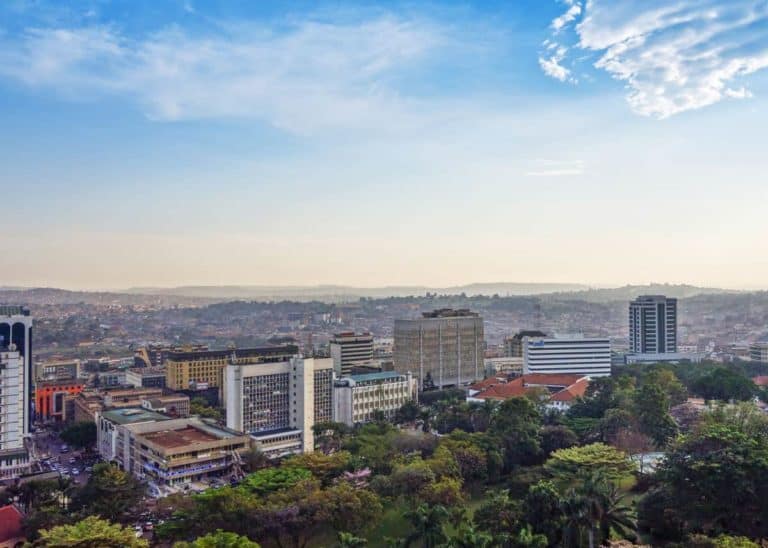
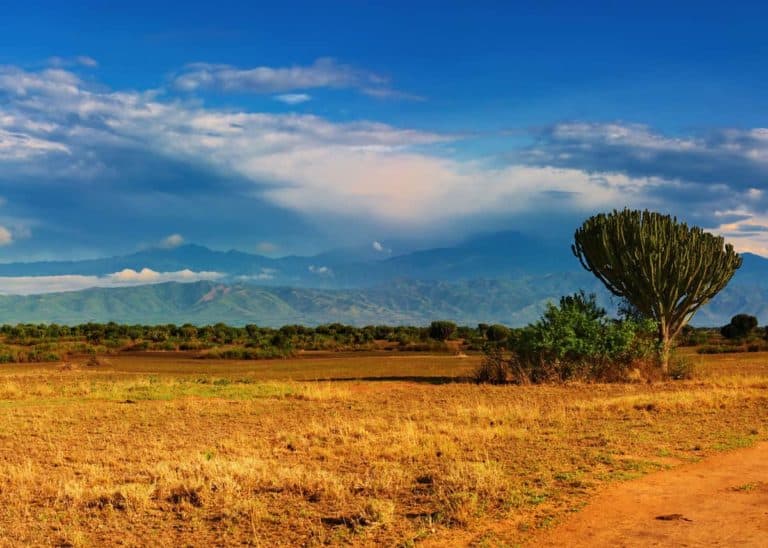

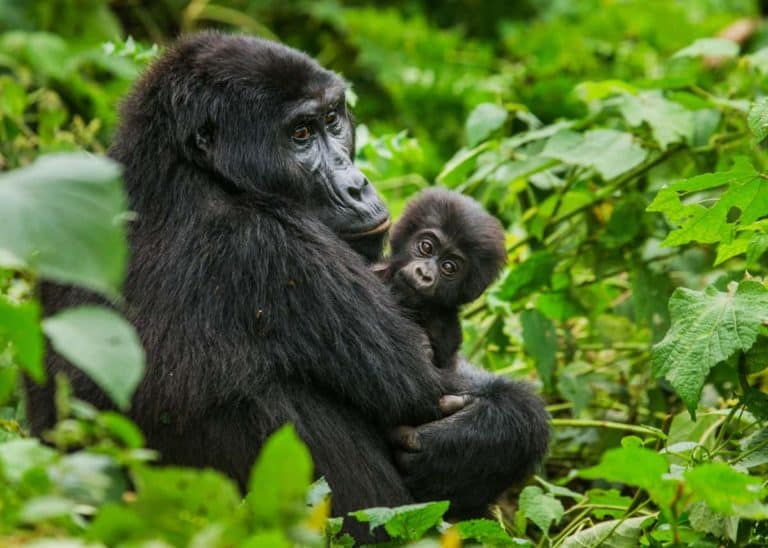
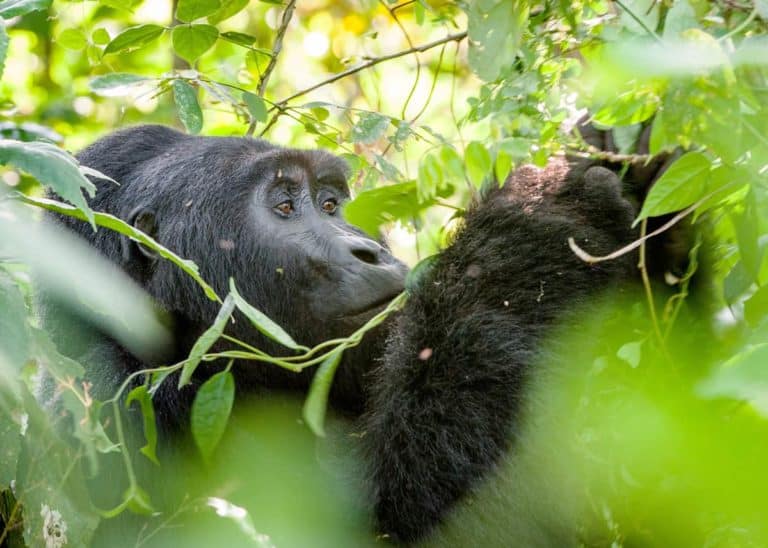

Kindly thanks very much, please I’m Ugandan but really I never took a time to think how beautiful my country is, until you are arrive, truly you are explain everything in my country, perfectly